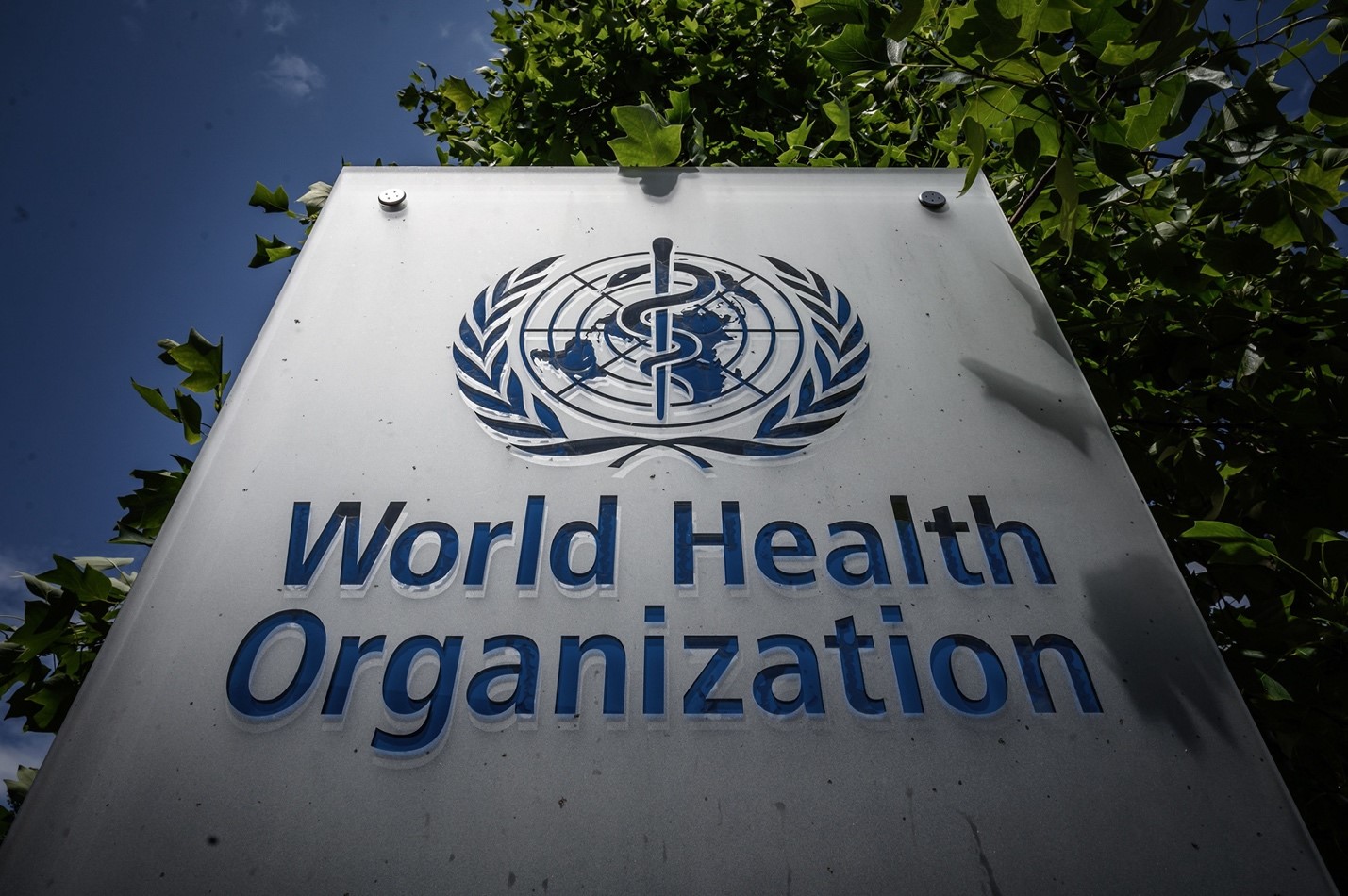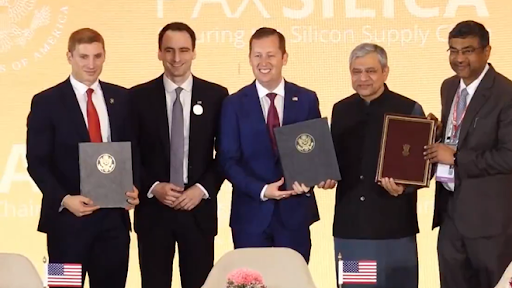Description

Disclaimer: Copyright infringement not intended.
Context
- The World Health Organization (WHO) was born when its constitution came into effect on April 7, 1948.
About WHO
History
- In April 1945, politicians from around the world gathered in San Francisco to establish the United Nations.
- At the meeting, leaders from Brazil and China suggested the creation of another global organization: one specifically devoted to global health rather than global politics.
- The World Health Organization (WHO) was born three years later in 1948.
- The World Health Organization (WHO) is the UN agency charged with spearheading international public health efforts.
Mandate
- WHO has a broad mandate to guide and coordinate international health policy.
- Its primary activities include developing partnerships with other global health initiatives, conducting research, setting norms, providing technical support, and monitoring health trends around the world.
- Over the decades, the WHO’s remit has expanded from its original focus on women’s and children’s health, nutrition, sanitation, and fighting malaria and tuberculosis.
- Today, the WHO monitors and coordinates activities concerning many health-related issues, including genetically modified foods, climate change, tobacco and drug use, and road safety.
- The WHO is also an arbiter of norms and best practices.
- Since 1977, the organization has maintained a list of essential medicines it encourages hospitals to stock; it has since made a similar list of diagnostic tests.
- The agency also provides guidance on priority medical devices, such as ventilators and X-ray and ultrasound machines.
- In its 2019 strategy, the WHO identified three priorities for its work over the next five years:
-
- providing health coverage to one billion more people;
- protecting one billion more people from health emergencies such as epidemics; and
- ensuring another one billion people enjoy better health and well-being, including protection from non-infectious diseases such as cancer.
.jpeg)
How is the WHO governed?
- The WHO is headquartered in Geneva and has six regional and 150 country offices.
- It is controlled by delegates from its 194 member states, who vote on policy and elect the director general.
- Tedros Adhanom Ghebreyesus, previously Ethiopia’s foreign minister, was elected to a five-year term in 2017 and reelected in 2022.
- WHO delegates set the agency’s agenda and approve an aspirational budget each year at the World Health Assembly.
- The director general is responsible for raising the lion’s share of funds from donors.
Success
- Some of the WHO’s most lauded successes include its child vaccination programs, which contributed to the eradication of smallpox in 1979 and a 99 percent reduction in polio infections in recent decades, and its leadership during the 2003 severe acute respiratory syndrome (SARS) epidemic.
- The agency has the exclusive authority to declare global health emergencies, which it has done several times since its members granted it the power in 2007.
- WHO has undertaken reforms to improve its ability to fight future epidemics and boost the health of the hundreds of millions of people still living in extreme poverty.
Failures
- The organization’s agreement to give up on trying to eradicate malaria in the 1960s represents another example of what some consider a botched job.
- Many critics have faulted the WHO for slow and poorly coordinated responses to outbreaks. That includes the 2014 Ebola outbreak, in which it waited five months before declaring a PHEIC, despite pleas from groups such as Doctors Without Borders.
- WHO is in an uphill battle to loosen its rigid bureaucracy and it faces an increasingly troublesome budget.
- The COVID-19 pandemic has proved to be another monumental challenge for the health agency, sparking fresh debate over its effectiveness.
- The WHO has become increasingly dependent on voluntary contributions, which puts pressure on the organization to align its goals with those of its donors.

What reforms has the WHO made?
- Responding to these criticisms, the organization instituted several reforms intended to improve its responses, including the creation of a reserve force of public health workers and a $100 million emergency fund.
- The WHO also added an incident management system that allows it to place medical responders, equipment, and supplies such as medicines on the ground right away while it coordinates a broader response.
- In a rare special session of the WHO’s World Health Assembly in 2021, delegates initiated the drafting of a global treaty on pandemic prevention, preparedness, and response.
- At the 2022 assembly, countries agreed on a U.S.-led proposal to strengthen the IHR by increasing member states’ accountability around disease outbreaks, though no changes have been formally approved.
Challenges
- There is no single document which comprehensively describes its responsibilities, obligations and powers with respect to infectious diseases.
- WHO’s authority is recommendatory in nature.
- The organisation’s responsibilities during a pandemic include surveillance, monitoring and evaluation, developing guidance for member states-lacks the ability to direct an international response to a life-threatening epidemic.
- WHO’s annual operating budget is smaller than that of many university hospitals.
- Lack of preparedness for the Global pandemic. It has delayed to declare Covid-19 as Public Health Emergency of international concern.
- No Appropriate action and investigation against the China that shows the lack of independence.
- Delay to provide crucial information regarding Covid-19like human to human transition etc.
Way Forward
- Strengthening the Public Health Emergency of International Concern (PHEIC) declaration process
- There is a need to ensure that extra budgetary or voluntary contributions are unearmarked to ensure that the WHO has necessary flexibility for its usage in areas where they are required the most.
- There is an urgent need for effective involvement of Member States in discussions on budget implementation and spending.
- Establishing strong and robust financial accountability frameworks will enable maintaining integrity in financial flows.
- Enhancement of the response capacities of the WHO and Member States:This has become more evident in their dealing with COVID 19 pandemic.
- The two policy making organs of the WHO i.e. the World Health Assembly and the Executive Board are currently playing a peripheral role. It is important that the member States have a greater say in the functioning of the WHO
- It is important to ensure fair, affordable, and equitable access to all tools for combating COVID 19 pandemic and, therefore, WHO should work in this direction
- There is a need to create a monitoring mechanism and support to member states on International Health Regulations, preparedness of infrastructure, human resources and relevant health systems capacities such as testing and surveillance systems.

9 point plan proposed by India- Approach on WHO reforms
- Changes in mechanisms to monitor health emergencies that can cross borders.
- Giving the head of the UN body greater power to declare an international public health emergency. Devising “objective criteria with clear parameters” for declaring a “public health emergency of international concern” (PHEIC) such as the Covid-19 pandemic.
- A greater role for the world body in ensuring fair, affordable and equitable access to Covid-19 vaccines.
- WHO’s regular budget should also be increased so that core activities are financed from it, without putting an overwhelming financial burden on developing countries.
- Voluntary contributions should be unearmarked to ensure that the WHO has necessary flexibility for its usage in areas where they are required the most.
- Changes and improvements in the body’s funding and governance: Effective involvement of all countries in budget implementation and spending. Strong and robust financial accountability frameworks should be created, a significant amount of transparency with respect to data reporting and disbursement of funds” should be established, and the efficiency of funding mechanisms such as the WHO Solidarity Response Fund should be strengthened.
- India called for strengthening capacities in countries found to be deficient and for enhancing international cooperation.
- Calling for a global framework for managing infectious diseases and pandemics, including capacities such as testing and surveillance systems, the document highlighted the “need to establish a system facilitating pan-world surveillance by leveraging innovating ICT tools”.
- The Indian government also called for efforts to ensure fair, affordable and equitable access to all tools for combating Covid-19 pandemic and, therefore, the need to build a framework for their allocation.
|
PRACTICE QUESTION
Q) In its 75 years of existence, World Health Organisation has seen more failures than successes. Examine the validity of this statement. (250 words)
|

https://indianexpress.com/article/explained/explained-health/75-years-of-the-who-8543500/









